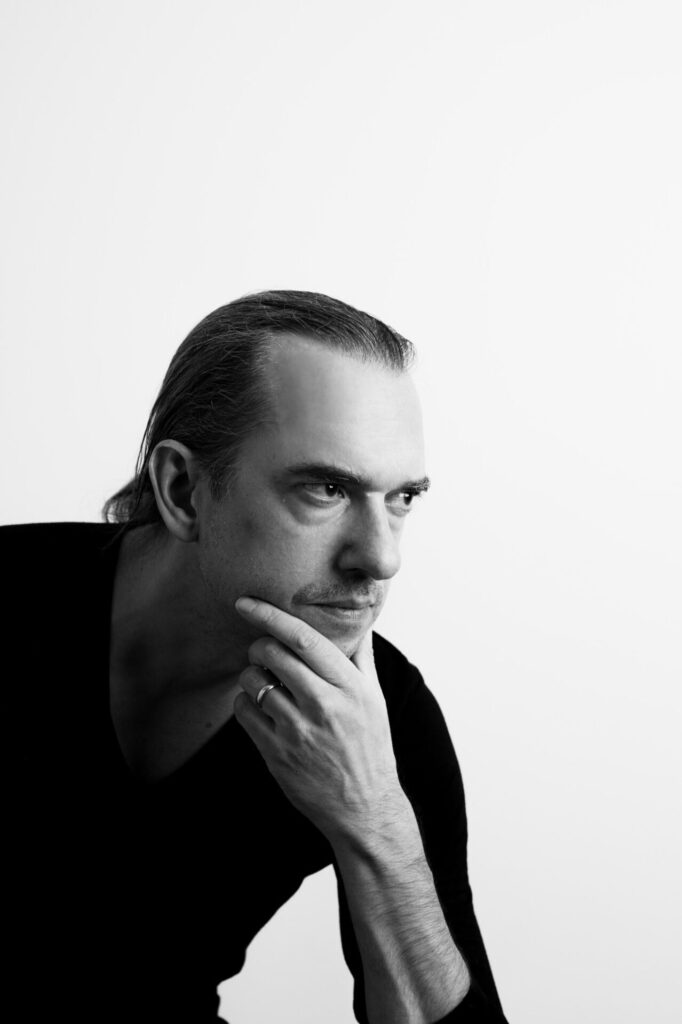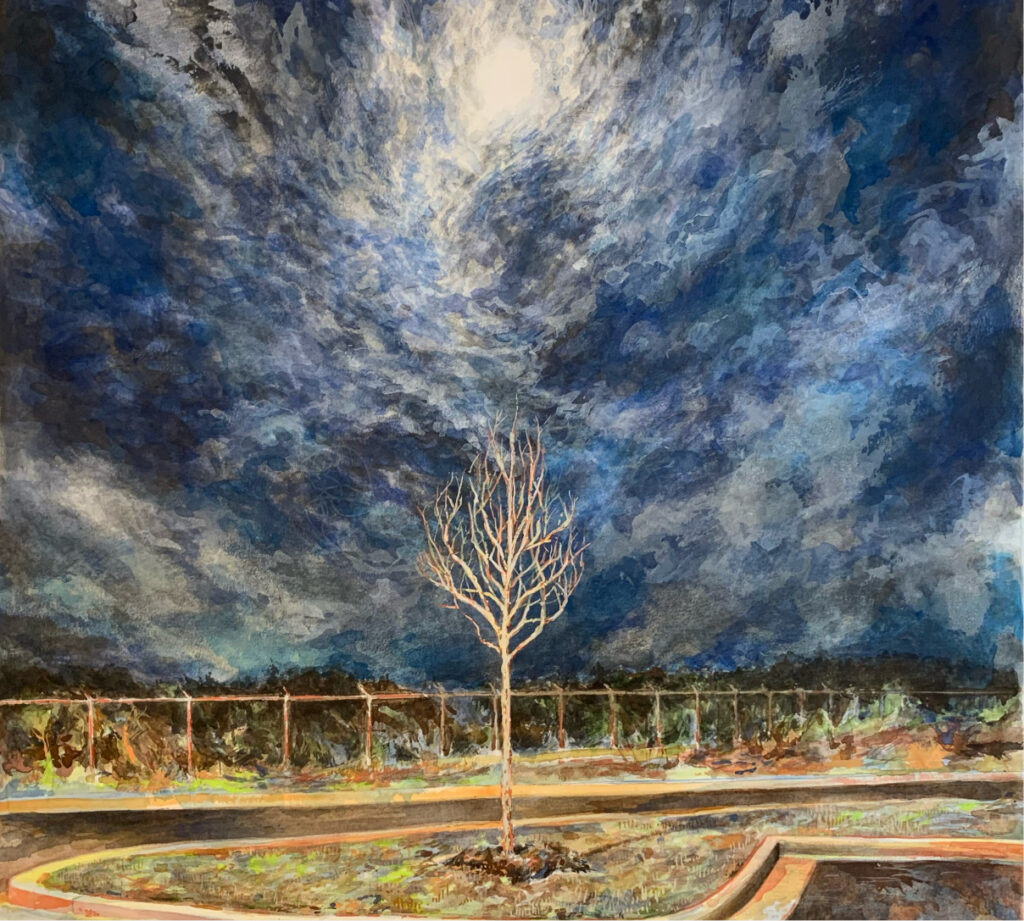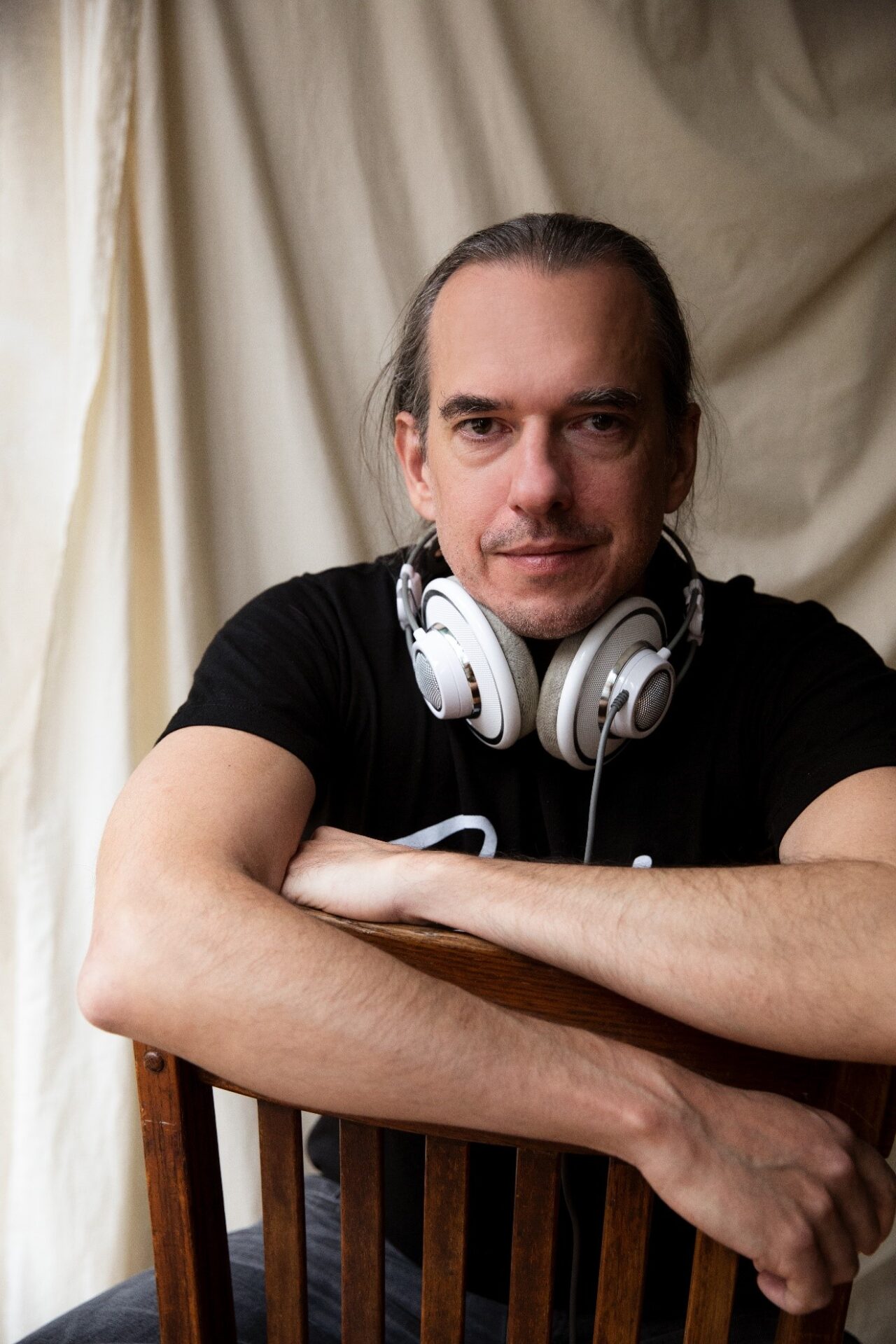The Laconic strives to create music that can stand on its own, devoid of technical displays (as his technique is unremarkable) and lyrics (because he is Laconic). He is more interested in optimism than gloom.
The Laconic, like the Jedi who craft their own lightsabers, plays the U8 Touch Guitar, bass guitars, and synthesizers, many of which he built himself. He has a Chicago address.
The album ‘Integrals’ is a vain attempt to resurrect the musical subgenre known as instrumental songs. These are wordless songs rather than solos performed over chord changes. They generally avoid technical displays and have melody, harmony, and structure. Check out the album and the exclusive interview below:

1. Can you tell us a bit about where you come from and how it all got started?
THE LACONIC:I’m a middle-aged man living in Chicago, who spent thirty years or so languishing as a bedroom player. Then I decided to act like a real musician, a little at a time, and see if anyone (including myself) would try to stop me. By some miracle, I only found encouragement.
2. Did you have any formal training or are you self-taught?
THE LACONIC: Both, which I imagine is the norm. I took piano lessons as a child, which among other things gave me a grounding in music theory. I’m mostly self-taught on bass guitar, but I did take classes at The Guitar Institute in London for a few years. I started taking lessons in touch guitar from Markus Reuter back in 2016, which gradually evolved into lessons in production and composition. For almost two years I have been learning modular synthesis, sequencing, and sound design from my friend Erik Emil Eskildsen. And last year I took Critical Listening at Berklee Online, which was worthwhile. So I’ve had my share of “formal” training. But then, for example, I’ve really taught myself most of what I know about subtractive synthesis, and I don’t recall anyone teaching me how to write a chord progression. So it’s a mix.
3. Who were your first and strongest musical influences and why the name ‘THE LACONIC’?
THE LACONIC: This may not be apparent from this interview, but I don’t actually say much, and I try to choose my words carefully and effectively. Hence: laconic. Which is especially appropriate for someone who records instrumentals.
My first and strongest influences are Chris Squire and Trevor Rabin (Yes), Tony Banks (Genesis), and Rush (all three of them in different ways). I’ve listened to them all since I was about 10. Later influences include Steve Rothery (Marillion), Tony Levin (King Crimson, Peter Gabriel), and Mike Oldfield. Markus Reuter is an influence in a category of his own.
I love progressive rock, at least back when it progressed, and I love the 80’s, and I’m sure it shows in my music. 90125 and Big Generator; Duke and Abacab; Permanent Waves, Moving Pictures and Signals. All prog, all 80’s, or at least culturally 80’s. Strangely, I wasn’t really into what we think of as “80’s music” during the 80’s. Now it seems like a golden age of music.
4. What do you feel are the key elements in your music that should resonate with listeners, and how would you personally describe your sound?
THE LACONIC:: My music contains characteristically “proggy” elements like odd time signatures and plenty of synths. But unlike a lot of stereotypically-progressive rock, it’s got hooks. It’s catchy. So it’s a bit poppy as well. It’s eclectic, often quirky. It is melodic and emotional. At its best, it is positively epic.

5. For most artists, originality is first preceded by a phase of learning and, often, emulating others. What was this like for you? How would you describe your own development as an artist and music maker, and the transition towards your own style,?
THE LACONIC: As part of the process of getting serious about music, I spent around a year just recording covers, which was good ear training and good practice at production and sound design. And I became conscious that I could do without singing, and I could definitely do without writing lyrics. I realized that some of my favorite songs were instrumentals: songs like Duke’s Travels and The Brazilian (Genesis), Discipline (King Crimson), Babylon (Flower Kings), and Follow Your Bliss (B-52s). I also realized that I disliked the genre in general; too many instrumentals were just songs with the lyrics removed, or soloing over a groove, or flashy technical displays without any heart. So I started to write what I call “music without words”, because I don’t have a better term, and “instrumental” is too big an umbrella.
6. What’s your view on the role and function of music as political, cultural, spiritual, and/or social vehicles – and do you try and affront any of these themes in your work, or are you purely interested in music as an expression of technical artistry, personal narrative, and entertainment?
THE LACONIC: I don’t hate many things, but I have contempt for music used as a vehicle for political or social or cultural messages (whatever those are), no matter how well-intentioned. It’s not music, it’s propaganda, and I actually have to be argued into believing something—it doesn’t do any good to sing it at me. And if you do, now I can’t help but judge you on something other than the music, and irrelevant to the music. Worse, it’s always the same kind of messages, so it betrays a sort of groupthink. Nobody writes songs advocating the restoration of the Stuart monarchy, for example — at least that would be interesting. (Jacobite metal?) So music with a message is deeply, repulsively uninteresting to me. I don’t even want to be tempted to use music as a vehicle for my half-baked opinions, which is one reason I prefer to make music without words. I’m not sure what constitutes music as a spiritual vehicle; either it’s all a spiritual vehicle in some sense, which is great, or it means some kind of proselytizing, which is not.
Technical artistry as such doesn’t interest me either, and so I haven’t cultivated technique for its own sake. Personal narrative comes close, but there’s nothing to narrate when you don’t use words, and although I like to talk about the narrative I had in mind when I wrote something, I don’t expect or even want anyone else to think about the song the way I do. I make music primarily to evoke certain emotional responses in myself, and I enjoy the process of doing that. If it evokes responses in others, and they desire that, then I guess we can call that entertainment.
7. Do you feel that your music is giving you back just as much fulfillment as the amount of work you are putting into it or are you expecting something more, or different in the future?
THE LACONIC: If it didn’t give back as much as I put into it, I wouldn’t bother. In fact, I put a huge amount of work into it, but what I get back is priceless. I am wrapping up recording for my second album (“Amor Fati”), and it has been a massive effort, nearly like having a second job, occupying most of my “leisure” time. I wonder how long I can keep this up, but I hope I can, because it’s 100% worth it.
8. Could you describe your creative processes? How do usually start, and go about shaping ideas into a completed song? Do you usually start with a tune, a beat, or a narrative in your head? And do you collaborate with others in this process?
THE LACONIC: Creating a song is like tossing a seed crystal into a supersaturated solution. When the seed hits the solution, a reaction starts that takes on a life of its own, and a new, larger crystal forms gradually, with new material added continually to the old. For me, that seed could be a chord progression, a percussion loop, an improvised riff, or even just a music-theoretical exercise, like figuring out how to smoothly modulate among a set of exotic keys. New gear or new software is often a source of seeds. A lot of seeds for the new album came from experimenting with two or three apps on the iPad. The initial seed, whatever it is, has many incremental changes and additions, sometimes small and accreting slowly, sometimes coming in big waves. I often rely on some narrative as a source of inspiration, and a means of creating internal coherence, but that comes later in the process, not at the start.
Here’s a good example. The song “Mirror” on the new album was the product of two things: the Fugue Machine app, and a newly-discovered love of FM synthesis, which I had dismissed before, out of ignorance. I had created this basic fugue, with parts distributed among different FM synth voices. And it sounded kind of medieval, because of the dominant seventh that we associate with songs like “Greensleeves”, but also I have this feeling that FM synths were used in fantasy movies in the 80s. The song at that point was purely in pentatonic minor, and I wondered how far I could get with just five notes, so there was a sort of compositional challenge established as well. Meanwhile, I had this idea that the first part could be more medieval-sounding, and the second half more modern-sounding, but really the same thing at some level. This made me think of the book A Distant Mirror by Barbara Tuchman, which draws parallels between the 14th and 20th centuries. And because the song is based on a fugue, it’s really the same damn thing over and over in different forms, shifting between eras of peace and eras of war, like history. This narrative influenced some of the composition and arrangement; for example, there are samples of smashing mirrors and ticking clocks. And I have the song end up pretty much where it started. This is dangerously close to social commentary, so let’s stop there.
9. With social media having a heavy impact on our lives and the music business in general, how do you handle criticism, haters, and/or naysayers in general? Is it something you pay attention to, or simply ignore?
THE LACONIC: Ignore. I write for myself, and I get to decide whether I have succeeded or not. If I can share it with others and they get something out of it, that’s gratifying, but incidental. If somebody hates it, it’s just irrelevant.
10. Do you think is it important for fans of your music to understand the real story and message driving each of your songs, or do you think everyone should be free to interpret your songs in their own personal way?
THE LACONIC: I do like to write about what different songs mean to me, but that’s largely for my own benefit; writing helps me clarify my own thinking. I don’t expect others to respond in the same way or for the same reasons that I do, and I don’t see music as a form of communication. I have no message. I have nothing to “say”. I don’t express anything; I can only evoke.
KEEP IN TOUCH:
FACEBOOK | INSTAGRAM | SPOTIFY | BANDCAMP | WEBSITE | YOUTUBE

Photo credits Nico Fernandez
